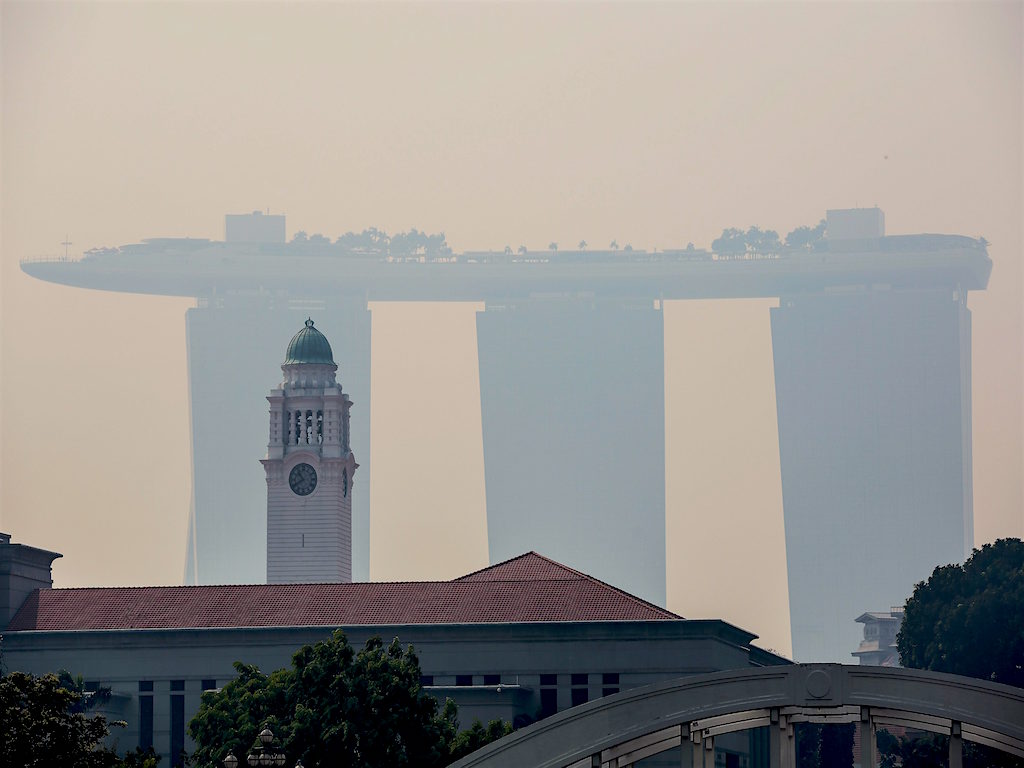3 Mins Read
In August, while social media channels were ablaze (!) with anger over the Amazonian rainforest wildfires, we reported on the fires engulfing forests right at our doorstep in Southeast Asia. These fires, predominantly located within the Indonesian rainforest, have continued to rage on and are currently plunging Singapore, Malaysia and the broader Southeast Asian region into severe haze. Air quality in many countries has reached extremely unhealthy levels due to the neighbouring fires, with Singapore experiencing the worst level in the past three years. Like the fires that swept across Brazilian Amazon this summer, these Indonesian fires are reportedly caused by slash and burn techniques used by farmers to clear land for agriculture.
In Indonesia, the number of forest and land fires have doubled within the first week of August and have since razed more than 328,700 hectares of land across the nation, according to the Meteorology, Climatology and Geophysics Agency (BMKG). Due to continued global demand for palm oil and other over-consumed food commodities, Indonesian farmers have felt the pressure to ramp up rainforest clearing. This practice is destroying our planet’s carbon-absorbing tool, as rainforests remain one of the vital resources we have left to combat global warming. 99% of the fires are deliberately set fires in areas that are prone to burning because of drained forestland used to produce pulp wood and palm oil plantations, the Indonesian Disaster Mitigation Agency (BNPB) said.
Since early August, the fires have quickly affected the Malaysia’s western Sarawak region, which is home to 2.6 million people. In the early weeks of last month, haze warnings were sparked in the Malaysian region. In the past week, local authorities have become increasingly concerned about the cross-border haze, prompting the closure of hundreds of schools.
Now, toxic smog has fully blanketed Singapore, severely shrouding the city of 5.6 million people. For the first time since August 2016, the National Environmental Agency (NEA) downgraded Singapore’s air quality on the 24-hour Pollution Standards Index to an “unhealthy” level of 87-106 on Saturday. This comes amid the Indonesian Disaster Mitigation Agency announcing a state of emergency in 6 provinces with a total population of over 23 million people due to the poor air quality as a result of the fires.
The Indonesian authorities have made some moves in an attempt to contain the fires, sealing off 30 plantation companies, including one Singaporean company and four Malaysian-affiliated firms. Last Friday, the law enforcement director at Indonesia’s Forestry and Environment Ministry said that the government will be prosecuting companies in order to deter the fires. Since the beginning of the fires, more than 9,000 people have been deployed to fight the fires, with 42 helicopters dropping almost 240 million litres of water as a part of their efforts.
The haze will bring high costs to the Southeast Asian region as air quality continues to rapidly deteriorate. In 2015, the last major bout of smog that affected Malaysia, Singapore and Indonesia caused closing down of schools and cancelled flights, while thousands experienced respiratory problems and required medical treatment. In addition to rising number of patients seeking treatment, this year’s fires have already impacted wildlife and natural flora in the region, affecting everything from bio-diversity to tourism to food security.
This article is a part of Green Queen’s collaboration in the Covering Climate Now project, a week-long initiative to raise global awareness of our planet’s climate emergency.
Lead image courtesy of EPA Photo / Bangkok Post.




